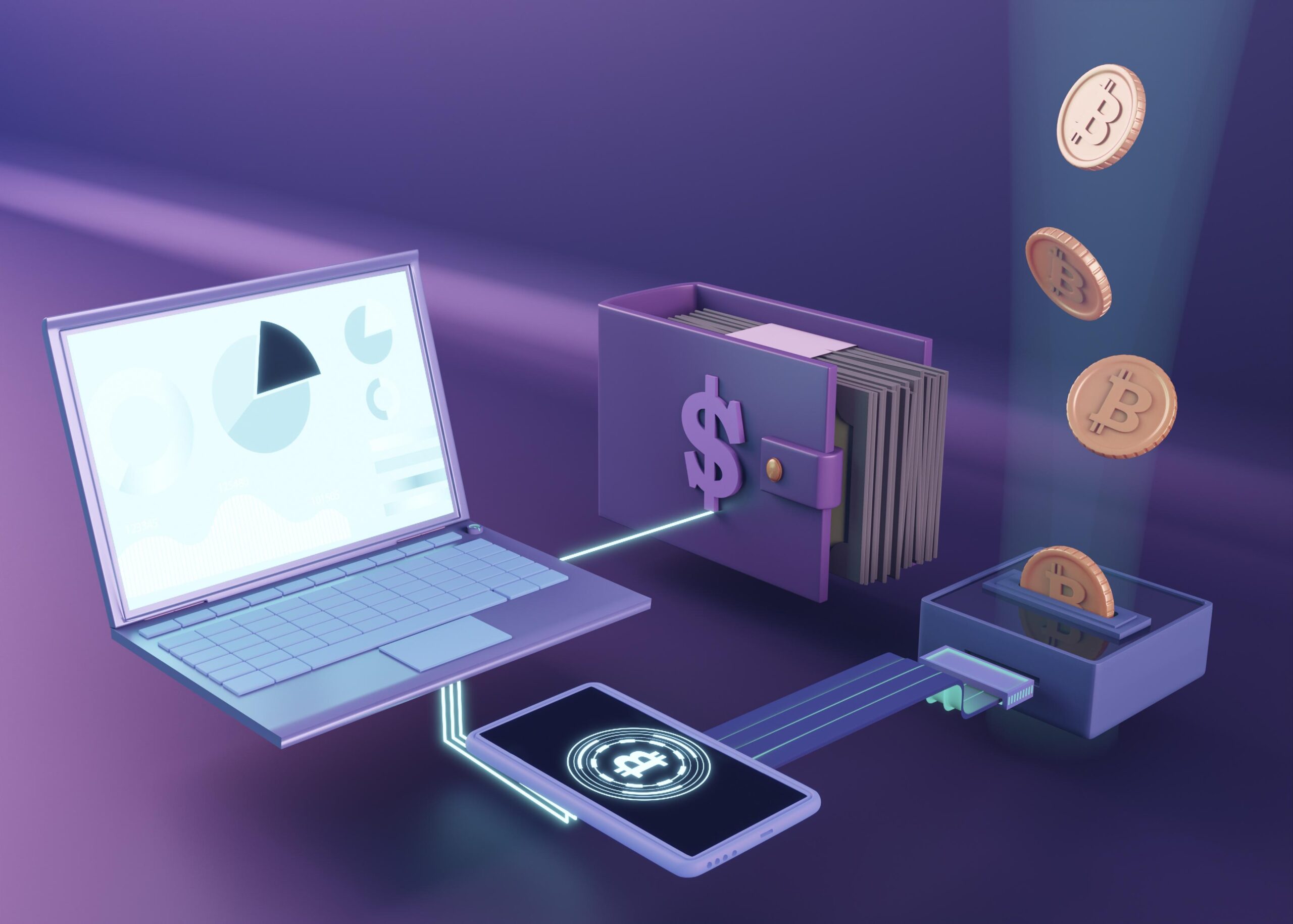DeFi apps don’t require intermediaries like banks do as the code defines the resolution of each possible problem. Human error is removed from the transaction process as the smart contract handles it.
What is DeFi?
DeFi stands for decentralized finance. It refers to the decentralized financial services on blockchain.
It provides all the services that banks offer lending, borrowing, insurance and many more. Through DeFi people can make transactions directly without the help of a third party. It makes the transaction faster, cheaper and more efficient.
It aims to decentralize finance by replacing centralized authority.DeFi disrupts the traditional financial world through its ability to offer a wide range of financial products directly from one party to another through blockchain technology. Smart contracts have allowed DeFi to provide financial services without needing a third party. Smart Contract is a transaction protocol that automatically executes a contract’s terms. In blockchain technology smart contracts play a vital role as it helps the transactions to be more safe and secure. In smart contract, code executes the action when specified conditions are met.
How DeFi Works?
Traditionally for any financial transaction from making an investment to taking out a loan you have to go to institutions like banks. There they confirmed that your account exists and you meet all the rules for making transactions.
DeFi changes the scenario instead of banks you can store your digital assets in a wallet and have complete control over it. DeFi changes the way you manage your finances.
DeFi Services
DeFi provides various services through various platforms let’s discuss its services
- Payments- DeFi platforms enable usage of digital assets to purchase goods and services without an intermediary. Example StablePay.
- Lending & Borrowing- DeFi allows users to lend and borrow crypto assets securely. Lenders can earn passive income by providing liquidity to the market and borrowers can obtain loans. AAVE and Dharma are examples of DeFi lending and borrowing applications.
- Insurance- DeFi provides insurance services to participants to insure against DeFi-related adverse events.Participants
pay premium in the form of digital assets.
DeFi insurance application includes Nexus Mutual and Etherisc.
- Saving and deposit- Crypto assets owned by individuals can be added to liquidity pools managed by DeFi applications to earn a passive income. Example Pool Together.
- Staking- DeFi provides Staking facility where participants can lock up their crypto assets to secure the blockchain network that uses a proof-of-stake mechanism and can earn rewards. Example Polkadot.
What are the benefits of DeFi Platforms?
- DeFi Apps allows users to transfer capital around the world.
- It provides a high level of security to users as it is based on cryptography.
- It provides the superior speed of blockchain technology resulting in faster and speedy transactions.
- Users have more control over their finances. They can monitor their portfolio.
- It can be used to create new assets and financial tools, which makes it flexible.
How DeFi can be an Alternative to financial architecture?
DeFi is a bottom-up innovation that replaces human trust, paperwork and legal enforcement.
DeFi aims to be faster compared with today’s financial architecture. The goal of DeFi is to eliminate centralized financial institutions i.e.banks from the financial system.DeFi uses blockchain technology to build decentralized financial apps that can be used by anybody with an internet connection.
Related: The Future Prospect of Using Blockchain Technology for Securing Digital Transactions
Conclusion
DeFi apps allow users to own and control their crypto assets. It offers borderless, decentralized and open finance solutions. It is much faster than centralized institutions and does not require third-party and paperwork. DeFi represents a significant innovation in the world of finance but it has some risks and disadvantages. As blockchain technology continues to evolve, we can expect further improvement in DeFi that will lead to a more robust and decentralized financial system.

